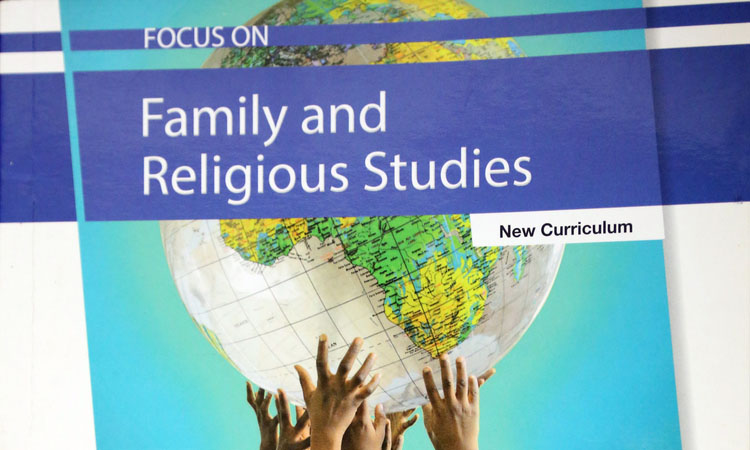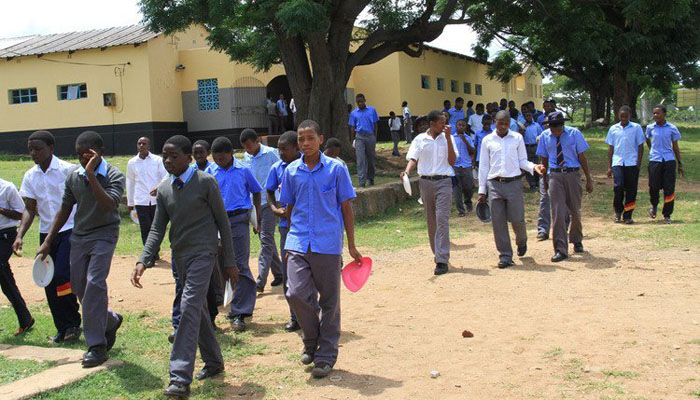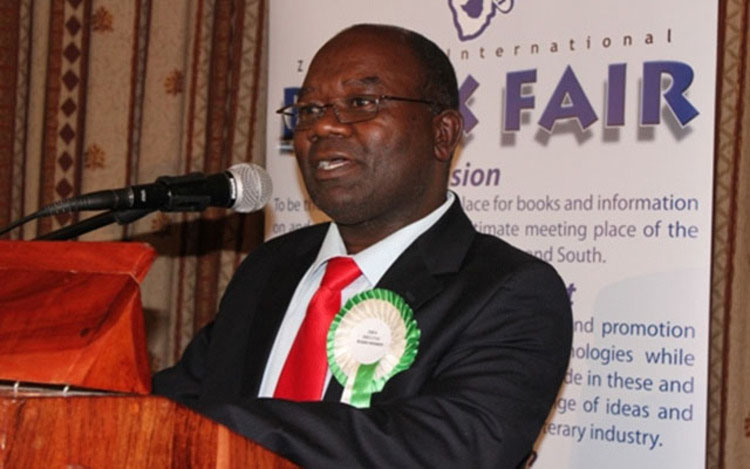
The Sunday Mail

Religious Affairs Editor
EDUCATIONISTS have said Family and Religious Studies in schools is a key driver of national development.
Authors behind the Ordinary Level texts for the subject include Dr David Bishau (Zimbabwe Open University), Mr Sipho Mhlambo (Curriculum Development and Technical Services Department) and Professor Richard Maphosa (now late).
Dr Bishau said Primary and Secondary Education Minister Dr Lazarus Dokora had emphasised the need to talk about religion in the context of the family.
“The centre of any development in a country stems from the awareness of people’s beliefs and values.
“I believe this is a better syllabus compared to the previous one. This one measures competency. You actually are saying by the end of this chapter the learner should have developed this competency and that one.
“This syllabus is not aimed at training bigots, people who are narrowminded. It is aimed at training people who are creative and broad-minded,” Dr Bishau said.
He went on: “When people talk about religion they speak about it in a superficial manner, you won’t develop unless you have a guiding ideology and conviction. Go to a technical someone, a business someone, a scientist, and tell them to produce something without pay — they will not.
“Values are important for development because what makes me come to work without being forced is important. If it’s not there it’s like a ship on the sand not in water.
“No matter how much fuel it has and how strong the propellers are, if there is no water to drive it, it will go nowhere.
“That which inspires a person to wake up early to come to work is what is important.
“That is how religion is connected to development.”
According to a Bloomberg report, the enormous growth of American company In-N-Out Burger Chain, now worth about US$1,1 billion, has been credited to their Christian ideology.
Dr Bishau also gave the example of Japan, where he said people were driven by Taoism/Daoism.
“We actually have an idiom which says work like a Japanese. So if you see a Japanese coming home at 2am, he does not log out that, ‘I have worked overtime.’ Daoism is guiding them and they work to fit into the plan of the Dao.
“Piety to family and religion governs them. That this company is for the family, it employs our family. Therefore I don’t destroy it because my family will not benefit in future.
“Right now I have a friend whose son is studying Aeronautical Engineering in Russia.
“But he is troubling his father needing notes on religion. They were told that there is nothing called spacecraft or a spacecraft engineer that doesn’t come from religion.
“You have to study religion to understand these things. Even China’s development is religious-based.”
Grade Three and Form One texts for Family and Religious Studies are on the market.
The initial plan was to produce books for Form One, Three and Five students who were to start with the new curriculum, but the target is now to produce the Ordinary Level texts.
According to Dr Bishau, the focus for Ordinary Level students will be on the four major religions in Zimbabwe, which are Christianity, Islam, Indigenous Beliefs and Judaism.
The first chapter deals with the concept of religion, how the family gets involved in religion and how religion impacts the family.
The next chapters focus on Indigenous Religion, Judaism, Christianity and Islam separately.
Cross- cutting themes are introduced in the next chapters which include Religion, Family and Identity, Religion and Education, Religion and Gender Roles, Religion, Ethics, Health and Sexuality, Religion and Disability as well as Religion and the Natural Environment.
The concluding chapters take students through Religion, Rights and Social Responsibility, Religion, Technology and Enterprise, Religion and the Liberation Struggle, as well as Religion and Conflict Resolution.
In its Education Sector Strategic Plan of 2016-2020, the Primary and Secondary Education Ministry emphasises why religion is important in the curriculum.
“Just under two-thirds of the population (62 percent) are Christians, with a small population of Muslims, and those who practise indigenous and traditional religion.
“Overall Zimbabweans have enduring religious, traditional and cultural beliefs that continue to have a profound influence on the behaviour of individual groups, groups of individuals and communities.”
With more than 24 years of experience in the education sector, Dr Bishau said one could not afford to ignore religion as Zimbabweans made decisions based on their faith, religious traditions and culture.
Managing editor at College Press Mr Phillip Mudzimba said their role was to oversee the publishing process which included submitting the drafts for approval to the ministry as well as marketing and the end product.
Last week Dr Dokora said Government was buying textbooks and other learning materials worth US$9 million from publishers to meet the required content in the new curriculum.






